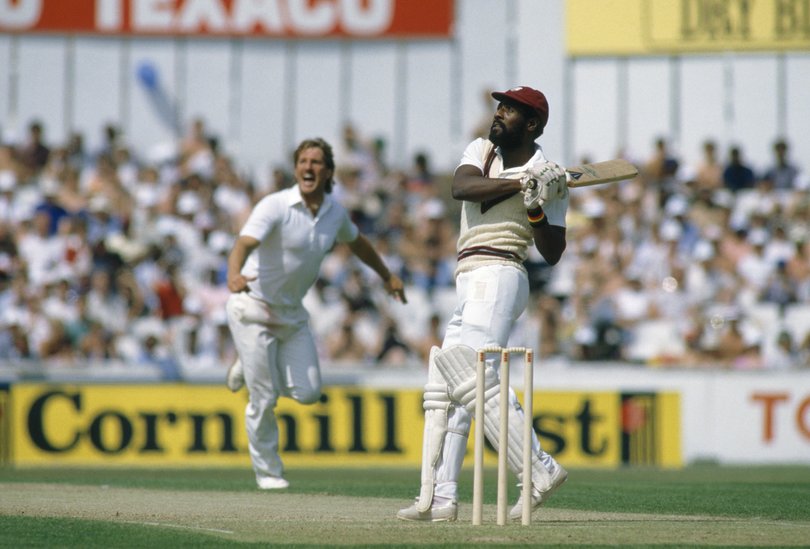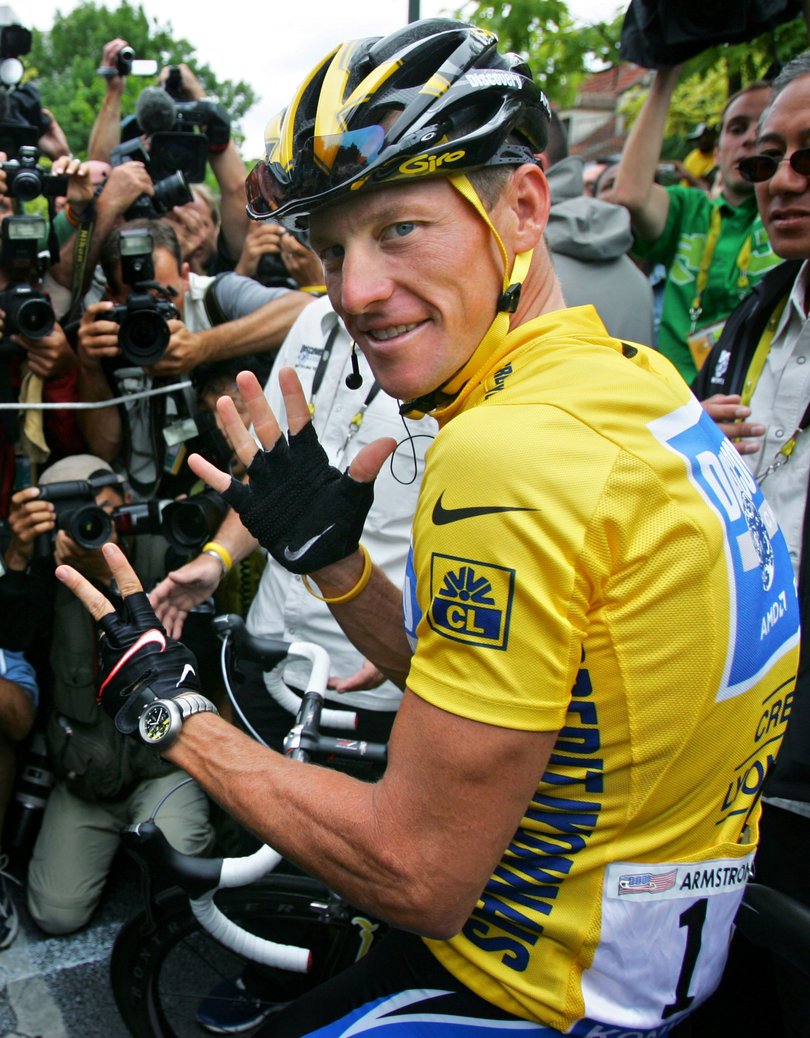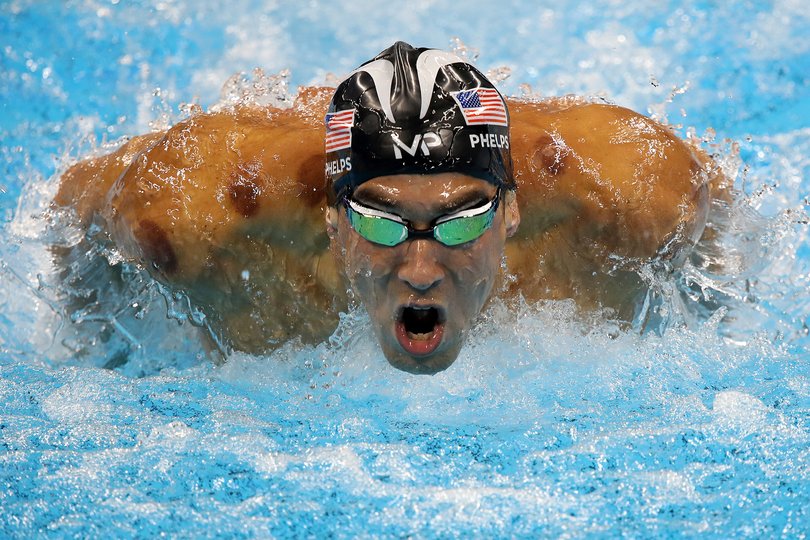Justin Langer: The recipe to deliver success on a consistent basis requires these key attributes

Want to win? Start by thinking like a winner — every single day.
That was the advice from Dr Rudi Webster, the man who wrote Winning Ways, one of the first books on psychology I read as a young athlete.
He was also the man who was pivotal in bringing together the mighty West Indian cricket team when they were revered as one of the greatest sporting forces in history.
Sign up to The Nightly's newsletters.
Get the first look at the digital newspaper, curated daily stories and breaking headlines delivered to your inbox.
By continuing you agree to our Terms and Privacy Policy.Standing on a grass bank in Antigua in the West Indies, the mantra “think like a winner” was just one of the pearls of wisdom offered to me by the renowned Barbadian.
That afternoon, perched alongside him and Sir Vivian Richards — my childhood idol — I was treated to one of the great tutorials of my life.
It was April 1995. The Australian cricket team was touring the West Indies. By great fortune, both Richards and Webster were at the ground watching our practice game.

Mustering every ounce of bravery, I wandered over to the two and introduced myself. What followed was a transformative conversation, elevating my mindset, almost instantly.
Last Saturday night I was at Marvel Stadium watching West Coast take on Collingwood.
Following a courageous defeat, I heard — not for the first time in the last few years — that the Eagles have forgotten how to win: “They are in the habit of losing, rather than winning.”
There is some truth to this theory, but what is meant by winning (or losing) habits? Why do certain individuals, and teams, have the knack of winning consistently?
And is there an art to it?
Success isn’t a one-time event, it’s a formulation of habits coming together.
Dr Webster understood this better than most. Winning Ways isn’t just a book about cricket, but rather a blueprint for building a winning mindset that transcends sport and seeps into life.
Much as I loved his book, that conversation with him and my ultimate hero, Sir Viv, re-enforced that winning starts in the mind.
Just as athletes train their bodies, they must also condition their thoughts — replacing doubt with discipline; fear with focus.
Mental toughness isn’t innate; it’s cultivated through relentless preparation, visualisation, and self-belief.
Confidence, he told me, is a practiced skill.
When I asked Dr Webster what he meant by that he answered: “Routine and repetition. Champions don’t luckily rise to the occasion — they rely on ingrained rituals and habits. Whether it’s a batsman’s pre-ball routine or a leader’s calmness under pressure, consistency breeds excellence. Victory isn’t luck; it’s the sum of daily choices, performed relentlessly and repeatedly.”
With Richards nodding and smiling next to me, Webster also told me about the importance of adaptability.
“Pitches change, opponents strategise, and conditions shift — if you want to be a winner you must learn to adjust fast,” he said. He stressed that mistakes, while frustrating, are feedback, not failure, adding: “Every loss is a lesson if you’re willing to learn.”
Laughing and clapping his hands, Sir Viv, kept saying: “Yes, yes and yes. Listen to the man and you will make more runs than you could ever dream of.”
Hearing about excellence is one thing, understanding how to put it into place is another.
Another giant of the game of cricket, taught me about HOW to get better at strengthening the blueprint of winning.
On the balcony of Lords in 1997, Greg Chappell encouraged me to open my journal back at the hotel and write down everything I remembered from the hundreds I had scored through my career.
“Jot down everything you can recall,” he said. “From the dinner you ate the night before, the breakfast you ate on the morning of the game; what time you went to sleep, how you prepared, what was going through your mind during the innings. Write down everything you remember.”
When I quizzed him on this, he said: “What you will find is a clear pattern emerging. This will be the blueprint of your personal success. Keep revising what you do on your good days and then do it more often. Do it all the time. Form winning habits, trust them and do them consistently.”
Greg then told me that most people do it the wrong way around. “They keep looking at where they go wrong and study their bad days to improve,” he said. “The problem with this approach is that you risk setting a blueprint of what not to do, rather than what to do. Losing habits can be formed, rather than winnings ones.”
Another close friend and psychologist Vic Smith reminded me about the power of habits this week.

Vic was telling me that Lance Armstrong — despite his obvious flaws and faults — had written in his book, Every Second Counts that “If you surveyed all the greatly successful people in this world, some would be charismatic, some would be not so; some would be tall, some would be short; some would be fat, some would be thin. But the common denominator is that they’re all capable of sustained, focused attention.”
Great achievers aren’t necessarily defined by charisma, physique, or luck — but by their ability to focus relentlessly. Picture the world’s most successful people. Some are bold speakers; others are introverts. Some tower over crowds; others go unnoticed — until they act.
But strip away the surface, and you’ll find the same engine driving them all: sustained, concentrated attention. This isn’t just about working hard. It’s about locking in. That means eliminating distractions, drilling deep into the task, and refusing to let go until the job is done.
Scientists, athletes, artists, and entrepreneurs share this trait — their genius was/is a byproduct of focus. In sport and business, winners share the same DNA: They focus fiercely, then repeat. They systemise habits so motivation doesn’t matter. They outlast, outlearn, and outwork — because luck favours those who are best prepared.
Winning habits don’t just apply to individuals.
The teams who win premierships — or consistently win — are made up of individuals who not only have strong personal habits but also respect and play their roles within their team. Individuals rarely win grand finals, they play their part, but they can’t do it without their teammates.
The best teams, like athletes, tend to do the little things consistently well. They turn up early and leave late. The mediocre ones turn up late and leave early.
The best teams spend more time mastering their skills, recognising there is literally not enough hours in the day to become the best. The mediocre teams, settle for “she’ll be right mate”.
The best are super fit; an area of their preparation they know than can control. The best recover consistently; not the most glamorous of processes, but necessary for durability.
The best teams keep an eye on their mates, the unexceptional ones look after themselves, in individual pursuits. The best teams celebrate successes and care about their team, club, franchise, country.
Similarly, businesses work in the same way. You can cut and paste the key attributes to great sporting teams and apply them to any business. One of the most successful businessmen I know, Nigel Wray, shared an important lesson with me many years ago.
“When you start a business, you know every paper clip, every piece of paper, every phone call, every person’s name, every expense,” he said. “The small things matter. But when you become more successful you forget the little things. Your belt buckle starts stretching out. You get lazy. You forget about the little things that brought you success.”
James Clear, the author of Atomic Habits, describes success as one per cent improvements — daily habits, not grand gestures.
Superstar swimmer Michael Phelps trained 365 days a year, even on Christmas. His coach drilled: “Habits don’t know holidays.”

Winning, like improving your skills, has an inspiring effect. The better you get, the more you want to do it. The more you do it, the better you get. Alternatively, when you’re losing, it is sometimes hard to drag yourself out of bed.
Your energy levels can correlate with your confidence. It’s easier to take the easy option and do less when you’re out of form or your team is losing.
The problem with this is that I have never met anyone who gets better at something doing less of it.
The bottom line is that winning isn’t magic — it’s focus turned into habit, habit turned into instinct, instinct into performance. Greatness is consistent choices, repeated daily.
If you take the advice of the best students of success and ask if winning really is a habit, you can be sure their answer will be: absolutely.
Winning is the product of mindset, preparation, and resilience.
As Dr Webster proclaims, champions aren’t born, they’re made. One disciplined thought, one relentless action at a time.
If that’s the case, it is worth the effort, because as I have said so many times before, winning is so much more fun than losing.
Just ask anyone who isn’t winning at the moment in sport, business or life.
